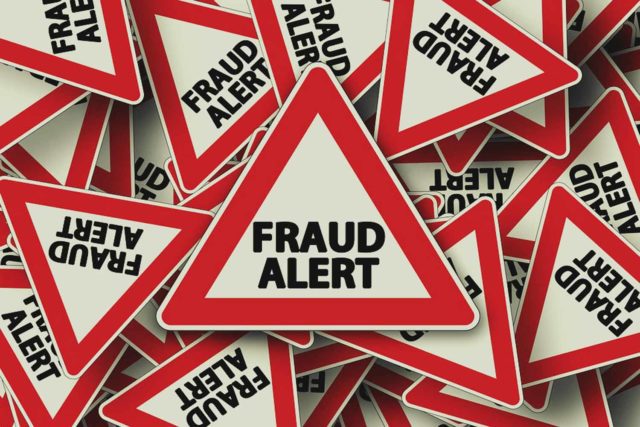What is an adversary proceeding in bankruptcy?
An adversary proceeding in bankruptcy is a lawsuit in a bankruptcy case. It is a formal legal process in which one party, usually a creditor, files a complaint against the debtor in bankruptcy court for a dispute such as the dischargeability of the debt.
Adversary proceedings help resolve disputes that arise during bankruptcy proceedings. When a dispute arises, a creditor generally may not take action because of the automatic stay protection debtors enjoy in bankruptcy. By filing an adversary proceeding against the debtor, the creditor avoids violating the automatic stay by allowing the bankruptcy court to oversee the resolution of the dispute.
Adversary proceedings are initiated by filing a complaint with the bankruptcy court, which the creditor(s) must serve on the debtor. The debtor has a certain amount of time to respond to the complaint, and if they fail, the court may enter a default judgment against them.
A common example of a dispute that may necessitate an adversary proceeding is a creditor or lender contesting the dischargeability of a debt. In bankruptcy, the dischargeability of a debt refers to whether a particular debt can be eliminated or “discharged” through the bankruptcy process. The discharge of debts is one of the methods the bankruptcy code implements to give debtors a “fresh start.”
Dischargeable debts, on the other hand, are typically unsecured debts, such as credit card debts, medical bills, and personal loans. However, certain types of debts are not dischargeable in bankruptcy, such as taxes, most student loans, child support, and certain types of fines and penalties.
Need help filing an adversary proceeding? Schedule your consultation today with a top bankruptcy and restructuring attorney.
When do disputes arise over dischargeability of debt?
Disputes over the dischargeability of a debt can arise when a creditor believes that a particular debt should not be discharged. The most common grounds for such objections include fraud, willful and malicious injury, and debts incurred through embezzlement or theft.
If a creditor files an objection to the dischargeability of a debt, the debtor must respond and provide evidence to support their position that the debt should be discharged. The bankruptcy court will then hold a hearing to determine whether the debt is dischargeable.
If the court determines that a debt is not dischargeable, the debtor will still be responsible for repaying the debt after the bankruptcy concludes. Therefore, it is essential to consult with an experienced bankruptcy attorney if you are facing a dispute over the dischargeability of a debt in bankruptcy.
What are relevant laws related to adversary proceedings in Florida?
Adversary proceedings in bankruptcy follow the United States Bankruptcy Code and the Federal Rules of Bankruptcy Procedure, which are part of the Local Rules of the United States Bankruptcy Court for the Northern, Central, and Southern Districts of Florida. These laws set forth the procedures and substantive rules that apply to adversary proceedings in bankruptcy court. Some of the relevant bankruptcy laws related to adversary proceedings include:
- Bankruptcy Code Section 524: This section sets forth the requirements and effect of a discharge in bankruptcy. Adversary proceedings may help enforce a discharge injunction, which prohibits creditors from taking any action to collect discharged debts.
- Bankruptcy Code Section 523: This section sets forth the exceptions to discharge, which specify certain debts that cannot be discharged in bankruptcy. Adversary proceedings may also help determine whether a particular debt is eligible for discharge.
- Bankruptcy Code Section 727: This section sets forth the grounds for denial of discharge, which include acts of dishonesty or fraud committed by the debtor. Adversary proceedings may serve to deny the debtor’s discharge based on these grounds.
Additionally, various Florida state laws and regulations may apply in certain circumstances. Some of the relevant laws related to adversary proceedings in Florida include the following:
- Florida Rules of Civil Procedure: The Florida Rules of Civil Procedure apply to adversary proceedings in bankruptcy court to the extent they are not inconsistent with the Federal Rules of Bankruptcy Procedure.
- Florida Statutes Chapter 726: This chapter provides for the administration and distribution of assets in a decedent’s estate, which may be relevant in adversary proceedings involving estates in bankruptcy.
- Florida Statutes Chapter 542: This chapter governs insurance insolvency proceedings in Florida and may be relevant in adversary proceedings involving insurance companies.
It’s important to note that these laws and regulations are subject to change, and specific circumstances may require researching other laws and regulations. Therefore, it’s always best to consult with a qualified attorney in Florida who can provide guidance and advice on the applicable laws and regulations in your particular case.
What is required to object to dischargeability when commencing an adversary proceeding in Florida?
The party seeking to object must:
- Have standing to file an objection: The debtor, creditors, parties holding the right to payment of the debt, and a Chapter 7 trustee in another case have standing to initiate an adversary proceeding to object to dischargeability.
- File an adversary complaint before the deadline: The deadline may vary depending on the type of bankruptcy proceeding. The complaint must meet the requirements of an adversary proceeding and comply with the local and federal procedural rules.
- Demonstrate by a preponderance of the evidence that the debt is not dischargeable: To meet this burden, a creditor must usually show one of the exceptions to discharge found in Section 523 of the United States Bankruptcy Code applies.
When a set of facts is appropriate to object to dischargeability there are many paths a claimant may take. We are value-based attorneys at Jimerson Birr, which means we look at each action with our clients from the point of view of costs and benefits while reducing liability. Then, based on our client’s objectives, we chart a path forward to seek appropriate remedies, such as:
- Denial of discharge: The debtor may not receive a discharge of the debt that was the subject of the adversary proceeding. Then, the debtor would remain liable for the debt even after the bankruptcy case is closed.
- Non-dischargeability judgment: The bankruptcy court may enter a judgment declaring the debt non-dischargeable. Using the judgment, the creditor may then pursue debt collection outside of the bankruptcy case.
- Recovery of property: If the debtor fraudulently obtained property from the creditor, the creditor may be able to recover the property from the debtor or from a third party who received the property from the debtor.
- Sanctions: If the debtor acted in bad faith in the bankruptcy case, the bankruptcy court might impose sanctions on the debtor, such as fines or penalties.
To see what actions may be available for your unique situation, please contact our office to set up your initial consultation.
Have more questions about adversary proceedings or dischargeability of debt?
Crucially, this overview of objecting to dischargeability by filing an adversary proceeding does not begin to cover all the laws implicated by this issue or the factors that may compel the application of such laws. Every case is unique, and the laws can produce different outcomes depending on the individual circumstances.
Jimerson Birr attorneys guide our clients to help make informed decisions while ensuring their rights are respected and protected. Our lawyers are highly trained and experienced in the nuances of the law, so they can accurately interpret statutes and case law and holistically prepare individuals or companies for their legal endeavors. Through this intense personal investment and advocacy, our lawyers will help resolve the issue’s complicated legal problems efficiently and effectively.
Having a Jimerson Birr attorney on your side means securing a team of seasoned, multi-dimensional, cross-functional legal professionals. Whether it is a transaction, an operational issue, a regulatory challenge, or a contested legal predicament that may require court intervention, we remain a tireless advocate every step of the way. Being a value-added law firm means putting the client at the forefront of everything we do. We use our experience to help our clients navigate even the most complex problems and come out the other side triumphant.
If you want to understand your case, the merits of your claim or defense, potential monetary awards, or the amount of exposure you face, you should speak with a qualified Jimerson Birr lawyer. Our experienced team of attorneys is here to help. Call Jimerson Birr at (904) 389-0050 or use the contact form to set up a consultation.

We live by our 7 Superior Service Commitments
- Conferring Client-Defined Value
- Efficient and Cost-Effective
- Accessibility
- Delivering an Experience While Delivering Results
- Meaningful and Enduring Partnership
- Exceptional Communication Based Upon Listening
- Accountability to Goals










